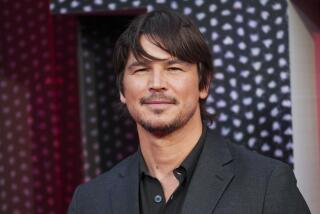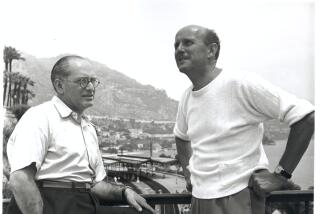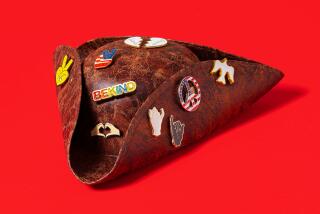On U.S. Independence Day, Britain is becoming more American
On the final full day of my month in England, I was sitting in the sunshine having a chat with Sir Geoffrey Nice, the British barrister who led the international legal team that prosecuted former Yugoslav President Slobodan Milosevic for war crimes. We were not discussing anything quite so serious as genocide as we looked out across Nice’s garden and tennis court to the 300-year-old house across the street.
My very young family and I had lived in that house 27 years before while I was in graduate school, and Nice had been one of my most interesting neighbors. Back then he was not a knight, just a fast-rising young lawyer and part-time judge at the Old Bailey. We would meet on the street between our houses and talk about the world. I remember one particular conversation when he noted just how thoroughly American I was. By that he meant I lacked the fatalistic and somewhat defeatist attitude of so many of his fellow subjects of the queen.
These many years later, he asked me what differences I had observed between England then and England now. Besides noting that the food was vastly better, I said the English and Americans seemed to have more in common than ever. Contrary to what some have said about the “special relationship” between the two countries becoming less special, I found the opposite to be true.
In terms of popular culture, Britain and America are entirely fused. Americans cannot wait for the next season of “Downton Abbey,” while the English have just finished watching another season of “Mad Men.” The British and American movie industries are completely intertwined. British film audiences accept Americans playing distinctly English characters, from Renee Zellweger as Bridget Jones to Meryl Streep as Margaret Thatcher. Americans are used to seeing English actors, such as Kate Winslet and Jude Law, adjust their accents to play American roles while a horde of other British thespians are flooding American movies and TV shows. Heck, even the new Superman is a Brit.
I was walking the High Street in Canterbury last week. In one doorstep, two street musicians played cool American jazz. Further along, a troop of buskers were belting out the Old Crow Medicine Show’s bluegrass hit “Wagon Wheel,” with its evocative references to the Cumberland Gap and North Carolina. At a garden party in a small rural village the next day, the hired band played nothing but American tunes. Two weeks before, I had been staying at the Hampshire Hog near Portsmouth where the Friday night band crooned American hits from the 1940s and ‘50s. And as I mentioned in a previous column, during a recent changing of the guard ceremony at Buckingham Palace, the band performed a medley of Stevie Wonder songs.
More telling than music and movies – which have been blending at least since the Beatles and the Rolling Stones crossed the Atlantic in the ‘60s – was the pub scene in London. At 5 p.m., those venerable old drinking establishments are packed, not with laborers in cloth caps, but with young stock traders and hedge fund managers who play the same capitalist game as their counterparts on Wall Street. Nearby, the high-end shops on New Bond Street are the same ones that can be found in the shopping districts of U.S. cities, from Los Angeles and New York to Houston and Honolulu. Meanwhile, down at Westminster, the Parliament debates budget cuts and cutbacks to healthcare, just like the U.S. Congress.
An ancient society that drips in history at every turn, England is still a distinct place, but modern Britain is also more American than ever. In particular, the younger generation of Brits swim quite comfortably in the same cultural pool as young Americans. Whether they like it or not, the country from which we declared independence on that July day in 1776 is becoming less a part of the Old World and more an outpost of the new.
More to Read
A cure for the common opinion
Get thought-provoking perspectives with our weekly newsletter.
You may occasionally receive promotional content from the Los Angeles Times.











